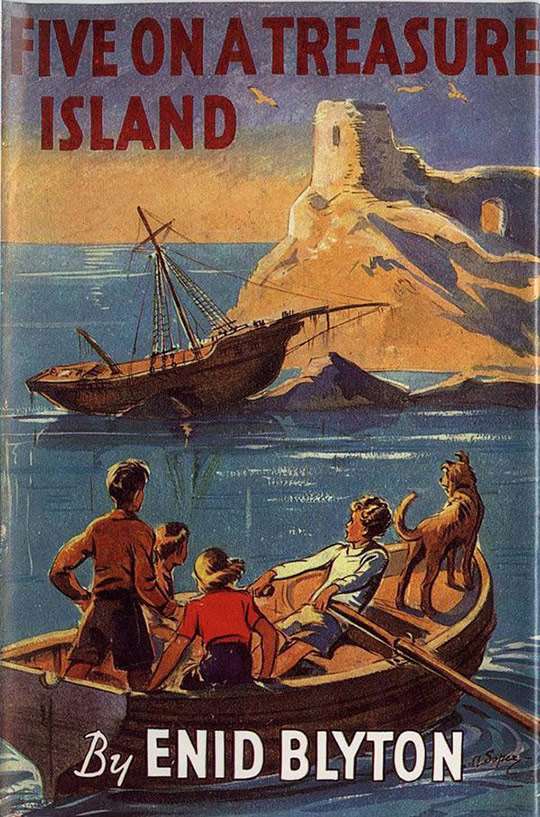English Heritage caused a kerfuffle recently when it updated its website entry about Enid Blyton. EH’s interest in Blyton derives from its responsibility for London’s blue plaque scheme, which marks buildings where notable people of the past lived or worked. Blyton has her own blue plaque in Chessington, where she once worked as a governess and where, according to EH, she ‘started to develop her storytelling skills’.
The kerfuffle kicked off when several newspapers latched onto one particular sentence on the updated web page. The offending item stated that ‘Blyton’s work has been criticised during her lifetime and after for its racism, xenophobia and lack of literary merit’. Now I loathe the Woke Twitter mob as much as anyone (well, almost) but this seemed like a reasonable statement of fact to me, despite the rent-a-gobs like Piers Morgan bleating about Blyton being ‘cancelled’. Blyton wasn’t being cancelled, she was, in the language used by English Heritage themselves, being ‘contextualised’.
Still, it seems that the anti-backlash backlash had an effect. The text on the EH website now reads:
Both during her lifetime and after, Blyton’s work has been criticised for various aspects of its content. Its formulaic plots and deliberate use of simple language irked some educators. Others took exception to what they perceived as social snobbery, racism and sexism embedded in Blyton’s storylines.
Again, those seem like fair observations, and the entry goes on to acknowledge that ‘while criticisms of Blyton cannot be entirely dismissed, her work has encouraged generations of children to read’.
Blyton’s books have been under fire for decades. The Enid Blyton backlash started in the 1950s and has rumbled on ever since. Her style was viewed as dull, her vocabulary limited, and her social attitudes reactionary, even at the height of her success. In 1973, Margery Fisher, the doyenne of children’s literature studies, described Blyton’s books as ‘slow poison’. Children all over the world, including me, continued to read them, regardless. I loved the Famous Five and the Secret Seven stories. And yet I didn’t buy any of Blyton’s books for my own daughter when she was young. Even twenty-five years ago, they seemed like period pieces, bloodless and anodyne when compared to the likes of Roald Dahl and Jacqueline Wilson.
If I have a misgiving about English Heritage’s approach, it is that there can be almost no-one with a blue plaque who will meet the exacting standards of the current progressive orthodoxy. Blyton’s racism was limited to a few stories but was still egregious. But what about, for example, Donald McGill, the illustrator of saucy seaside postcards, who has a plaque in Blackheath? If they paid it any attention, the opinion influencers would surely regard his work as sexist and, horror of horrors, rife with gender stereotypes. McGill’s page on the EH website has yet to be contextualized but its time will surely come.
But really, the EH website is a side-show. The real conflict relates to new plaques and who gets them. Despite the laughs he gave to millions, a character like McGill wouldn’t stand a chance today.

